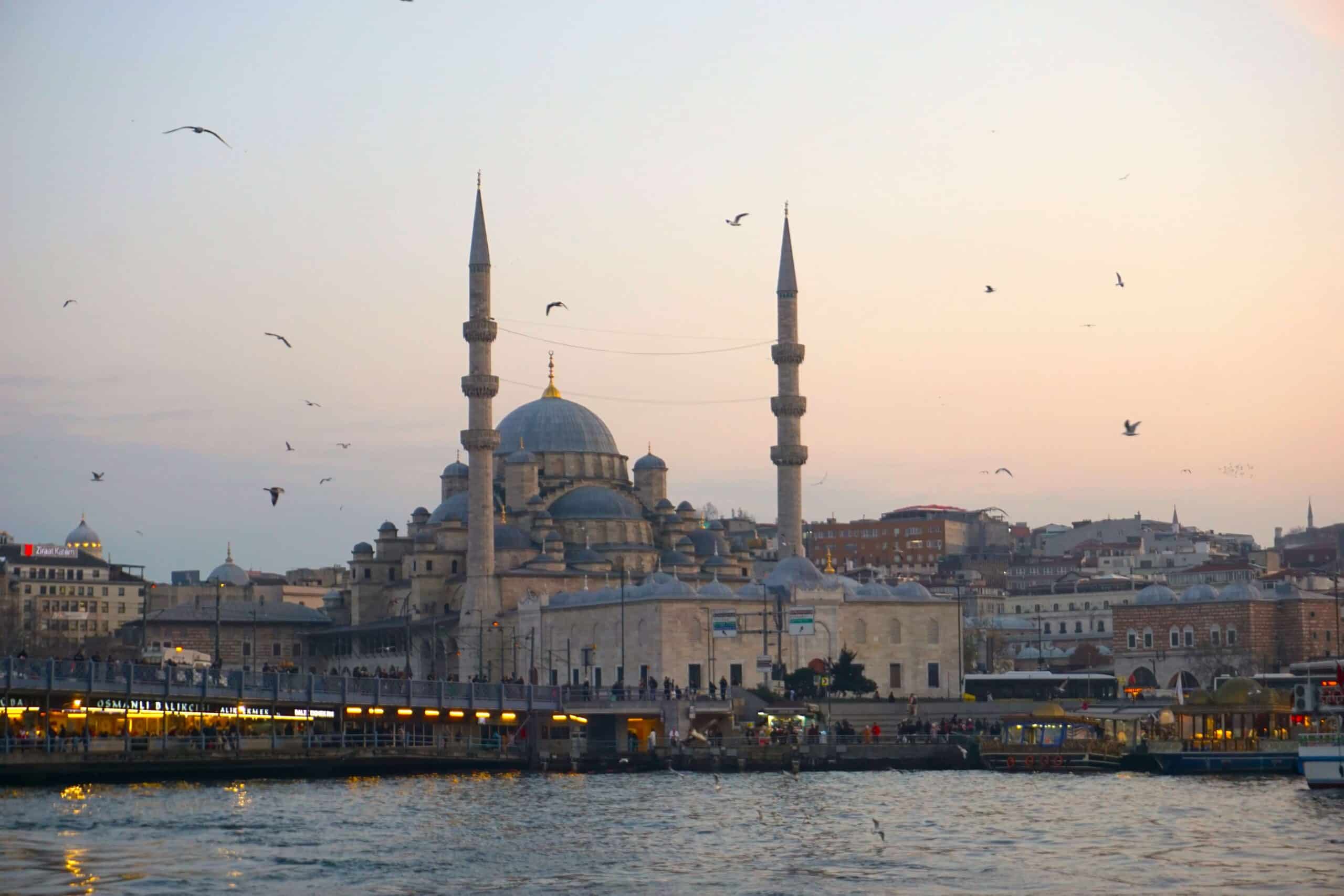Is Istanbul the Capital of Turkey? No, and Here’s Why
Have you ever wondered, “Is Istanbul the capital of Turkey?”
If so, you may be surprised to learn that it’s not! Although many people think that Istanbul is, the capital of Turkey is actually Ankara. But, as the largest city in Turkey and a major European capital of culture, why isn’t Istanbul the capital?
This may seem surprising, but the choice of Ankara over Istanbul as the capital is grounded in historical and geopolitical factors that have shaped Turkey’s modern identity. In this article, I’ll take you through the many reasons why Istanbul is no longer the capital of Turkey, shedding light on the strategic considerations that led to Ankara’s selection.
Please note this post may contain affiliate links. If you click on one, I may earn a small commission at no extra cost to you. See my Privacy Policy for more information.
Is Istanbul the capital of Turkey?
No, Istanbul is not the capital of Turkey. The capital of Turkey is Ankara, a city located in the central part of the country.
While Istanbul is not the capital, it is the largest city in Turkey by population and serves as a vibrant cultural and economic hub. Istanbul’s global recognition is partly due to its historical significance as the former capital of the Ottoman Empire and its continued role in hosting a plethora of modern cultural events.
One reason many people think Istanbul is the capital is because it’s home to the largest airport in the world, Istanbul International Airport. This major international gateway is often the jumping-off point for many visitors to Turkey, taking them around the country to popular destinations like Cappadocia and Antalya. In fact, many people traveling to Turkey don’t even visit Ankara during their trip!
The decision to make Ankara the capital of the Turkish Republic in 1923 was based on strategic and practical considerations, as well as the desire to symbolize Turkey’s transition to a modern, secular nation-state.
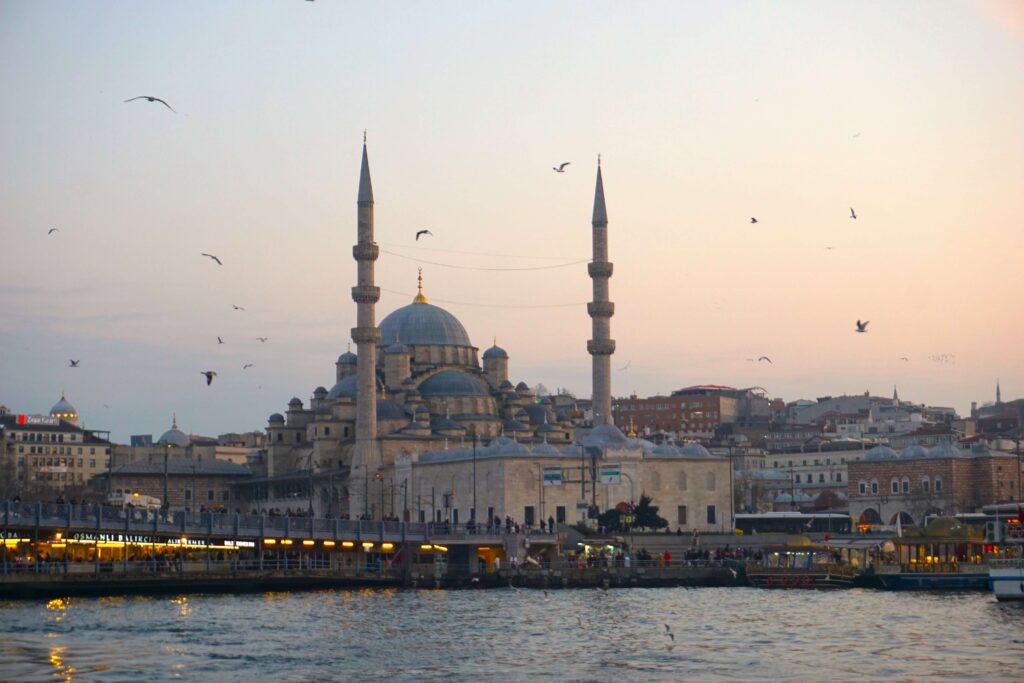
Was Istanbul the Capital of Turkey at Any Point?
While Istanbul has never been the Turkish capital, for centuries it was the capital of the Ottoman Empire.
With the dissolution of the Ottoman Empire following World War I and the subsequent establishment of the Republic of Turkey under the leadership of Mustafa Kemal Atatürk, the capital was moved from Istanbul to Ankara in 1923. This move marked a deliberate shift towards a new era in Turkish history, symbolizing the birth of a modern, secular, and unified nation-state. Therefore, Istanbul’s status as the capital ended with the downfall of the Ottoman Empire, and Ankara has held that position ever since.
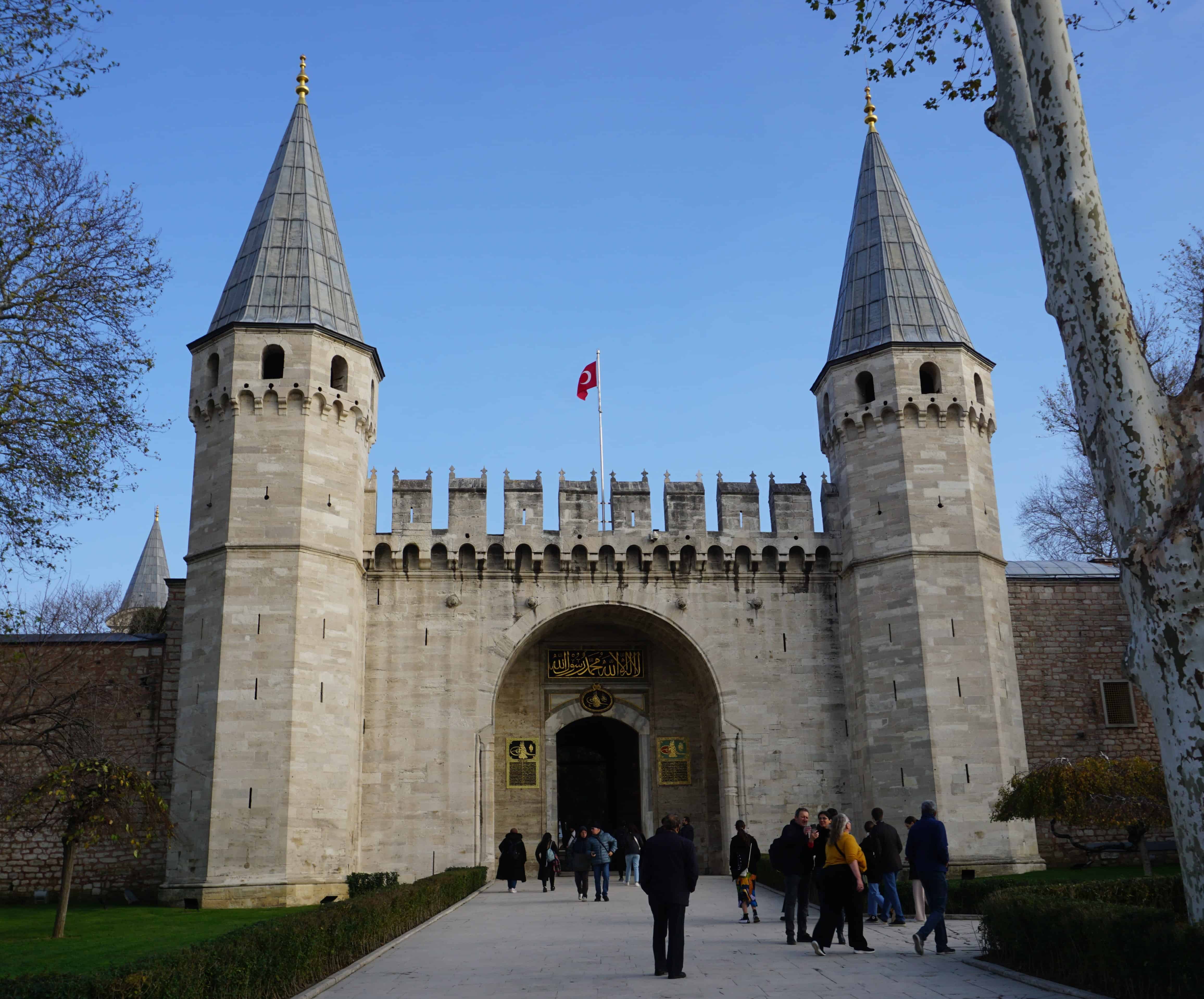
Why Is Istanbul Not the Capital of Turkey?
There are several reasons why the city of Istanbul is not the capital. Historically, Istanbul served for centuries as the capital of the Byzantine and later the Ottoman Empire. However, with the establishment of the modern Turkish Republic in 1923, Mustafa Kemal Atatürk, the Republic’s founder, made the strategic decision to relocate the capital from Istanbul to Ankara. This move marked a significant shift away from the Ottoman past and symbolized the birth of a new, modern, and secular Turkish nation-state with Ankara as its capital.
Ankara’s central location within Turkey played a pivotal role in this decision, offering more equitable access to different regions of the country compared to Istanbul’s northwestern location, which is closer to Europe. Atatürk’s vision extended beyond symbolism; he aimed to stimulate economic growth and development in the country’s interior, thus reducing regional disparities and promoting balanced national development.
Geopolitical considerations also factored into the decision, as Istanbul’s position on the Bosphorus Strait and Sea of Marmara made it vulnerable to international conflicts. Ataturk was concerned that, if Istanbul remained the capital, its geographic location would make Istanbul vulnerable to attack. Moving the capital to Ankara was seen as a measure to reduce the risk of foreign intervention in Turkish affairs.
When Ataturk established Ankara as the capital, it reinforced the idea of a united Turkish identity, further promoting national unity. This was especially important for a newly emerging country coming out of many years of a bloody war of independence.
So, even though Istanbul is one of the most historically important cities in the world, and served as the capital under the Ottomans, Istanbul is not the capital of modern-day Turkey.
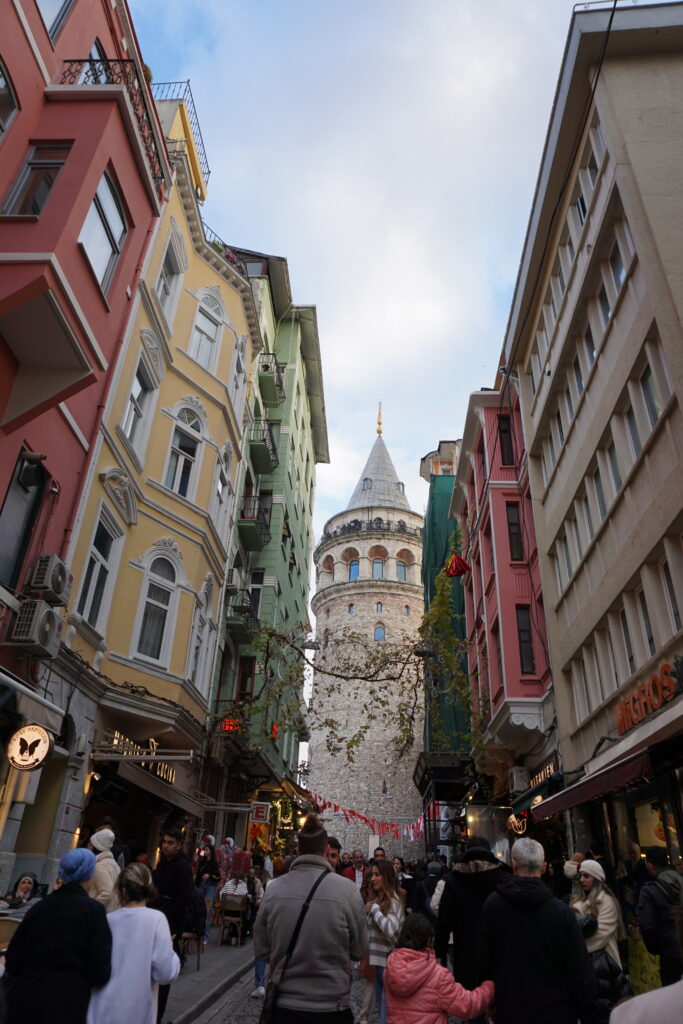
Brief History of Istanbul
Istanbul, formerly known as Constantinople, is a sprawling mega-city that straddles both Europe and Asia. The city sits on both sides of the Bosphorus, with the Asian side of Istanbul to the east and European Istanbul to the west. Its strategic position along the Sea of Marmara and up to the Black Sea has led to its reputation and importance as a crossroads between Europe and Asia.
Istanbul is not only the largest city in the country, but the population of the city makes it the largest in Europe.
The city’s roots extend deep into antiquity. This ancient city’s foundation dates back to 667 BCE when Greek colonists from Megara established it, naming it Byzantium after their king, Byzas. The Romans played a pivotal role in its history, damaging the city in 196 CE, only to see it resurrected under the reign of the Roman Emperor Septimius Severus.
However, Istanbul’s defining moment came with the vision of Constantine the Great, who, in 330 CE, declared it the “new Rome” and relocated the capital of the Roman Empire there. In the process, he renamed it Constantinople (after himself, of course).
Over time with the split of the Roman Empire and the establishment of the Byzantine Empire, the city’s significance grew as famous landmarks like the Hagia Sophia were erected within the city walls. Despite exterior threats, Constantinople remained a political, cultural, religious, and economic center of Europe until the Ottoman Turks, led by Fatih Sultan Mehmed, captured the city in 1453. Thus came the fall of Constantinople.
The city was renamed Istanbul and became the celebrated capital of the Ottoman Empire. The sultan converted Istanbul from a Christian city to a Muslim one, and the Hagia Sophia was converted into a mosque. When the last Ottoman Sultan stepped down, the newly formed Republic of Turkey designated Ankara as its capital. While Istanbul remains an important commercial and historical centre, it is no longer the capital.
Istanbul’s rich tapestry of history continues to attract people from around the world, with its UNESCO World Heritage Site status and unique geography along the Golden Horn and the Bosporus Strait. While it may not hold the title of capital, it remains one of the most important cities in history and one that’s uniquely European and Asian.
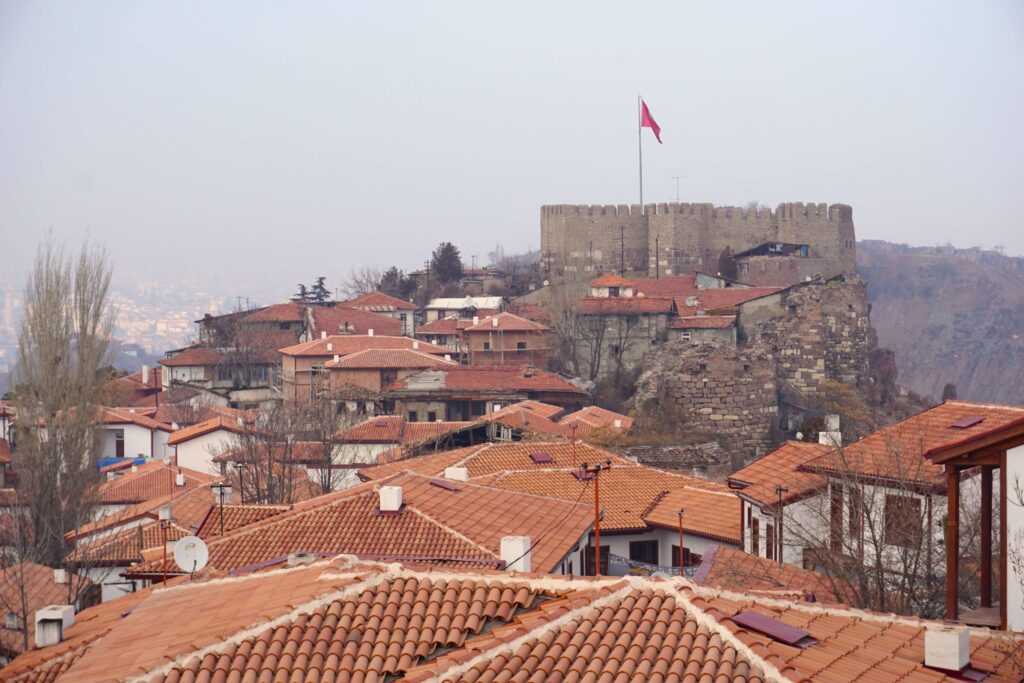
When Did Ankara Become the Capital of Turkey?
Ankara was established as the capital of Turkey on October 13, 1923, after the Turkish War of Independence.
This decision was made shortly after the establishment of the Republic of Turkey and the end of the Ottoman Empire. Mustafa Kemal Atatürk, the founding father of modern Turkey and the country’s first president, chose Ankara as the new capital to signify a break from the Ottoman past and to symbolize the nation’s transition to a modern, secular, and unified state. The move to Ankara was accompanied by a deliberate shift in governance and culture, setting the stage for Turkey’s political and societal transformation.
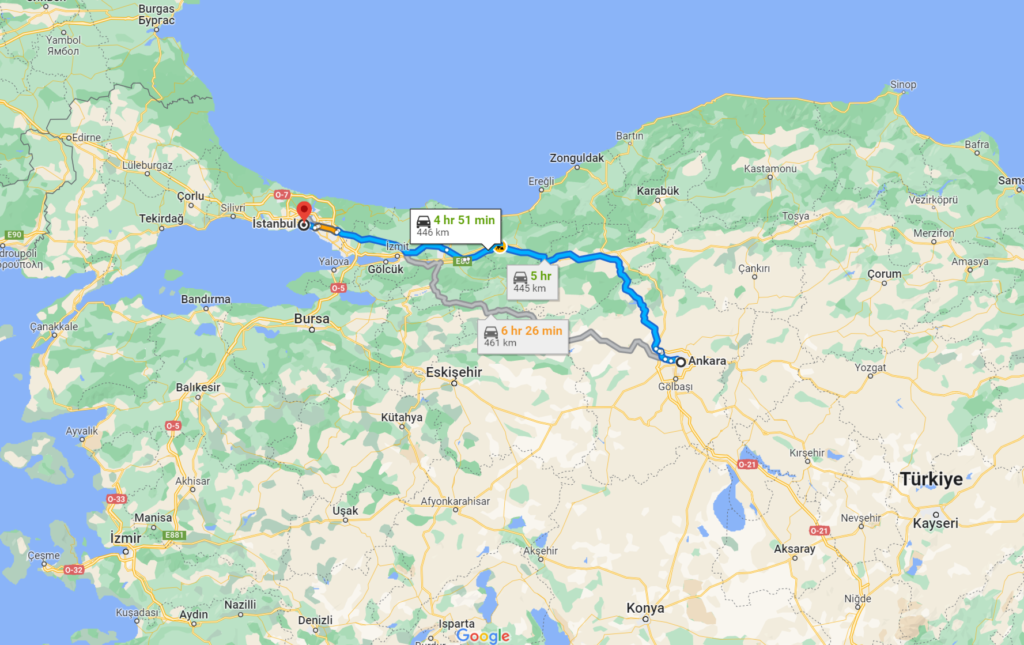
Ankara vs Istanbul
Istanbul and Ankara are very different from each other, but each is interesting in its own right. While most visitors only visit Istanbul, both cities offer history, culture, and delicious food. Both are family-friendly and are great places in Turkey to visit with kids.
Istanbul is the largest city in Turkey and definitely has a more vibrant feel. With its location that straddles the Bosporus Strait, one of the best things to do in Istanbul is take a sunset cruise along the Bosphorus.
Istanbul also has many famous Turkish landmarks, from the Hagia Sophia and Galata Tower to Topkapi Palace and Dolmabahçe Palace. Visitors can explore the Spice Market and Grand Bazaar and purchase souvenirs to bring back from Turkey.
Ankara is more off the tourist track but certainly worth visiting. Located within the heart of the Anatolia region, it’s easy to get to from around the country.
When the Turkish capital was established in Ankara it was a much smaller city. However, Ankara today is a bustling city with many top museums and interesting sights.
One of the most important sights in Ankara is the Anitkabir, the mausoleum built to honor and house the remains of Mustafa Kemal Ataturk. Anitkabir is a major pilgrimage sight for Turkish people, and you will often see visitors getting emotional while paying their respects.
The Old Quarter of Ankara is a delightful place to wander and shop. When you get tired, sit at a cafe and order one of the many delicious traditional Turkish drinks on offer. The walled city also offers beautiful panoramic views of the surrounding area.
When planning your trip to Turkey, I do hope you’ll include some time in Ankara. While Istanbul is known throughout the world, Ankara offers a more relaxed city experience within the heart of Turkey.
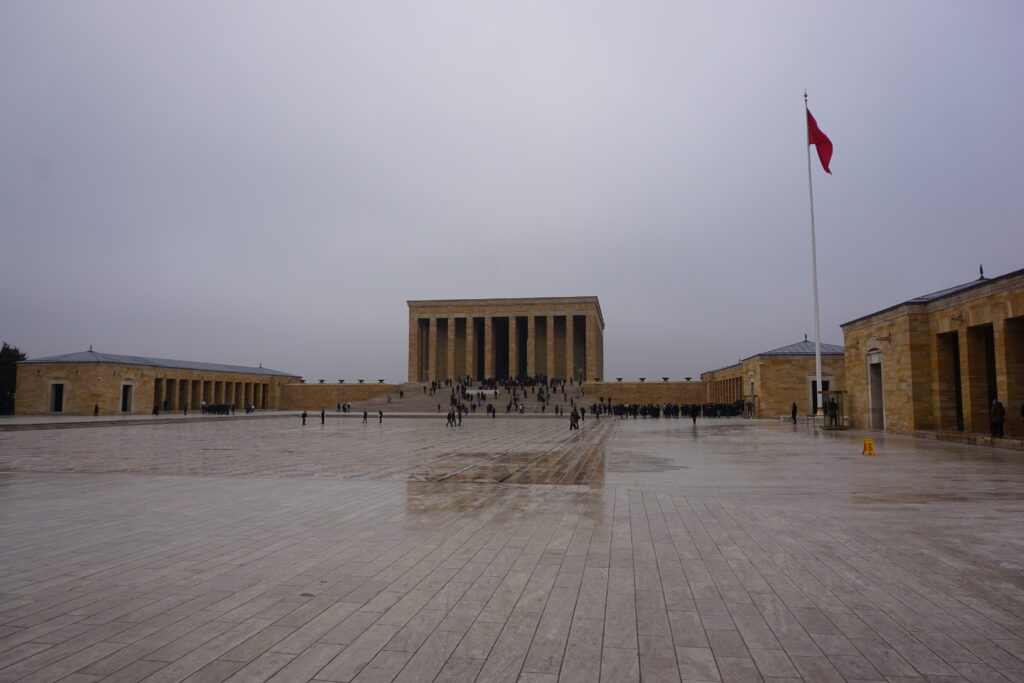
FAQs: Is Istanbul the Capital of Turkey?
No, Istanbul has never been the capital of Turkey. Although it served as the capital of the Byzantine Empire and later the Ottoman Empire, it lost its status as the capital when the modern Republic of Turkey was founded and Ankara was chosen as the new capital.
No, Turkey does not have two capitals. Ankara is the official and sole capital of Turkey.
The capital of Turkey is Ankara, not Istanbul.
No, Istanbul is not the capital of Turkey today. Ankara is the current capital of Turkey.
The capital of Turkey was moved to Ankara to be more centrally located geographically within the country, and thus represent a more cohesive identity for the new Turkish Republic.
Istanbul is a transcontinental city in northwestern Turkey, but it is not the capital of any country.
Is Istanbul the Capital of Turkey? Final Thoughts
While Istanbul straddles the continental divide between Europe and Asia and is the most populous city in Turkey, Ankara claims the status of the capital. Many historical and strategic considerations led to the moving the capital to Ankara, not least of which was to foster national unity within the new republic. Istanbul’s rich past persists as a hallmark of its significance, but regardless of this Ankara is the capital.
